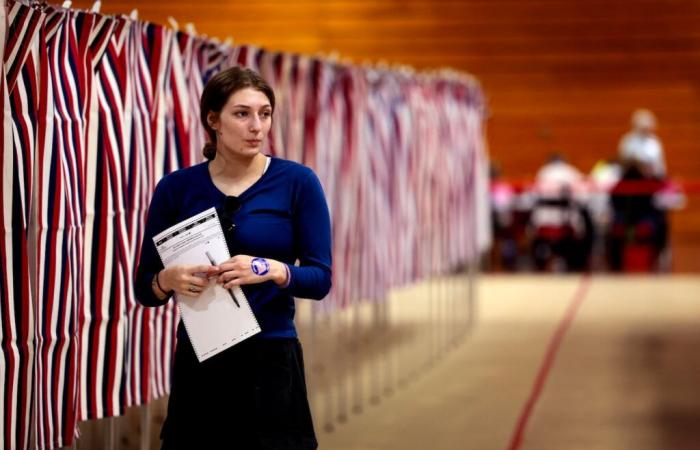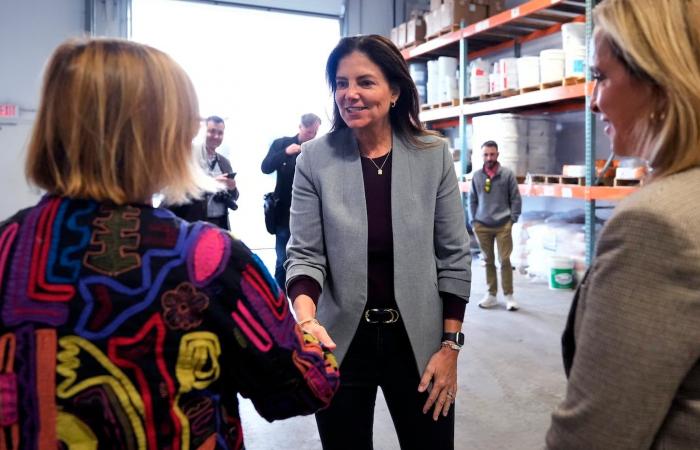It has also been one of the most contentious, with attack ads from Ayotte’s campaign aimed at portraying Craig as an ineffective former mayor who was soft on crime in Manchester, and left-leaning groups launching ads noting Ayotte’s support for former president Donald Trump and accusing her of “attacking reproductive rights.”
Get N.H. Morning Report
A weekday newsletter delivering the N.H. news you need to know right to your inbox.
Steven Wright, an undeclared voter from Concord, N.H., said that while he voted for Trump on Tuesday as he had in 2016 and 2020, he did not stick with Republicans down the ticket. Instead of voting for Ayotte, he skipped voting for New Hampshire governor entirely.
“I don’t trust either one of them,” he said of Ayotte and Craig, noting that Ayotte “flip-flopped” on her support for Trump. The incessant TV ads from both candidates didn’t sway him, either.
”I’m ready for it all to stop, actually,” he said.
Ayotte, whom Sununu endorsed, would be the first Republican woman to win a gubernatorial race in New Hampshire. She pledged to keep the state on its current trajectory, “the Sununu path,” with low taxes and an emphasis on public safety.
A victory for Craig, however, would herald the biggest shift in state leadership in nearly a decade.
Ayotte’s supporters gathered Tuesday night in a ballroom at The Artisan Hotel at Tuscan Villagein Salem, N.H., while Craig’s supporters were at the Puritan Conference Center in Manchester, alongside US Representative Chris Pappas and other New Hampshire Democrats.
Ayotte, 56, a married mother of two who lives in Nashua, was the first woman to serve as New Hampshire attorney general. She had that job for five years before she won her 2010 election for US Senate.
Ayotte ran for reelection in 2016 but lost to then-Governor Maggie Hassan by just over 1,000 votes. Ayotte withdrew her support of Trump shortly before the 2016 election over the revelation of an “Access Hollywood” videotape in which Trump bragged about groping women without their consent, yet went on to shepherd his first US Supreme Court nominee, Neil M. Gorsuch, through the confirmation process in 2017. When Trump consolidated enough support to win the GOP nomination this year, Ayotte said she would back him.
Ayotte was the only gubernatorial candidate this cycle who had previously won a statewide election, so she entered the race with an advantage in name recognition and work experience in both state and federal office.
Craig, 57, a married mother of three, served as a Manchester school board member then an alderman. She lost her first mayoral campaign in 2015; won in 2017, 2019, and 2021; then decided not to seek reelection.
After launching her gubernatorial bid, Craig suffered a political embarrassment in 2023 when the candidate she endorsed as her preferred successor, Kevin J. Cavanaugh, was defeated by a Republican-aligned opponent, Jay P. Ruais, who had campaigned against the “status quo.” Ruais, who’s now been mayor for nearly a year, campaigned with Ayotte as she criticized Craig’s leadership of the state’s most populous city.
Throughout her 15-month campaign, Ayotte cited Massachusetts taxes, immigration policy, and more as the adverse outcomes that she said follow Democratic leadership, and she said Massachusetts Governor Maura T. Healey’s support for Craig’s campaign shows that Healey and Craig are of like mind. She also tapped into concerns about homelessness and public safety, with ads that referred to Manchester as “Craigville,” to make the case that Craig was ill-suited to lead the state. Craig pushed back by touting her record and citing data that shows violent crime in Manchester fell by about 40 percent on her watch.
Democrats argued Ayotte cannot be trusted to keep her promise to protect reproductive health care, though she has said she will not sign any abortion legislation stricter than New Hampshire’s current law, which restricts abortion after 24 weeks of gestation. Craig, meanwhile, called for New Hampshire lawmakers to add affirmative protections for abortion rights, with a state law akin to those on the books in every other New England state.
Ayotte also campaigned on promises to support law enforcement, strengthen penalties for drug dealers, and “strictly enforce a zero-tolerance policy for sanctuary cities.” She opposes legalizing cannabis for recreational use, and she supports working toward universal school choice.
Craig has criticized socially conservative Education Commissioner Frank Edelblut and said she will ask for his resignation. She supports legalizing cannabis for recreational use, banning the sale of semiautomatic firearms and high-capacity magazines, and reinstating a version of the state’s recently eliminated interest and dividends tax — though such changes would require legislative action.
This is a developing story and will be updated.
Amanda Gokee of the Globe staff contributed to this report.
Steven Porter can be reached at [email protected]. Follow him @reporterporter.







